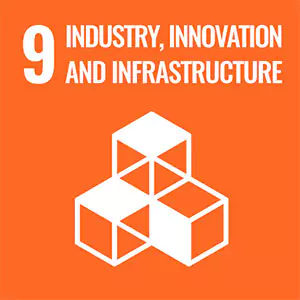MSc Machine Design
The master's programme in Machine Design puts you at the forefront of shaping machines and technologies that drive our world forward. From concepts to real-world applications, you will explore the latest methods in mechanical systems design, learning to innovate, analyse, design, and optimise everything from robotics and next-generation vehicles to sustainable energy solutions. You will graduate ready to lead in the ever-evolving field of machine design.

Machine Design at KTH
The two-year master’s programme in Machine Design empowers students with advanced skills in designing, developing, and analysing cutting-edge machines and mechanical systems. The curriculum emphasises innovation, sustainability, and the integration of the latest technologies in the field. You will access world-leading education and research, as KTH is ranked 25 among universities worldwide in Mechanical Engineering (QS World University Rankings by Subject 2026).
The programme will prepare you to:
-
Master the fundamentals: Gain a solid foundation in mechanics, materials, and engineering design.
-
Innovate for impact: Apply advanced design principles to develop efficient and sustainable machines.
-
Solve complex problems: Strengthen your analytical skills to address demanding engineering challenges and optimise performance.
-
Shape future solutions: Build the expertise to contribute to the next generation of machine design.
In the first semester you will build a strong foundation of knowledge in mechanics, materials, and engineering design while exploring key aspects of machine design. During the second and third semester you will learn how to design, select, size, optimise, and verify high-quality, sustainable, and cost-effective technical products using state-of-the-art tools and methods widely applied in industry. You will also apply life-cycle thinking to integrate sustainability into every design decision.“A major part of your studies will be group projects carried out in close collaboration with our industry partners and research groups, developing both specialist expertise and a holistic perspective on engineering design.
In addition to the mandatory courses, you can choose from a broad range of elective courses to tailor your design expertise toward industries such as automotive, aerospace, renewable energy, robotics, or medical engineering.
In the fourth semester you take on your master’s degree project, working in a research setting at KTH, in industry, or in a university or research institute anywhere in the world, giving you the freedom to specialise in what excites you most.
Throughout the programme, you will combine lectures, exercises, seminars, assignments, labs, design reviews, and hands-on projects, ensuring a dynamic and practical learning experience. You will also sharpen your soft skills in problem-solving, project management, and professional communication, preparing you for your future career.
This is a two-year programme (120 ECTS credits) given in English. Graduates are awarded the degree of Master of Science. The programme is given mainly at KTH Campus in Stockholm, by School of Industrial Engineering and Management, with access to facilities at the Department of Engineering Design and the KTH Prototype Centre. The curriculum is designed, taught, and updated by internationally recognised professors and researchers in collaboration with industry representatives.
Courses in the programme
The programme offers a broad mix of courses covering both the foundations and applications of mechanical design engineering. You will study machine design and components, develop system-level perspectives through systems engineering, and learn to create more sustainable solutions with eco-design. You will also gain specialist knowledge in tribology—the science of friction, wear, and lubrication—and explore how machine learning is increasingly applied in modern mechanical engineering.
Courses in the programme Machine Design
Future and career
The master’s programme in Machine Design equips you to meet complex engineering challenges with advanced methods and digital tools. You will not only design products but also contribute to how they are developed, used, and experienced. The programme prepares you for roles in product development, engineering design, and research in industry or academia.
Graduates pursue careers such as Product Engineer, Sustainability Design Engineer, or Simulation Engineer, as well as specialist roles including Tribology Engineer for electric vehicles. The programme also opens opportunities in renewable energy systems, automotive innovation, additive and advanced manufacturing, and medical engineering technologies.
Alumni work at companies such as Scania, Afry, ABB, Saab, Alstom, Atlas Copco, Volvo Construction Equipment, Volvo Cars, Electrolux, and Alfa Laval, as well as in start-ups and consulting firms. Many graduates also continue to doctoral studies at KTH or at other leading universities worldwide.
Sustainable development
Graduates from KTH have the knowledge and tools for moving society in a more sustainable direction, as sustainable development is an integral part of all programs. The three key sustainable development goals addressed by the master's programme in Machine Design are:



Affordable and clean energy
-
Learn to design machines that are energy-efficient, helping to reduce emissions and dependence on fossil fuels.
-
Contribute to the transition to renewable energy by working with technologies such as wind turbines, hydroelectric systems, and wave energy converters.
Industry, innovation and infrastructure
-
Drive industrial innovation by developing smarter machines and optimising existing systems for higher performance.
-
Develop sustainable infrastructure that is resilient, resource-efficient, and environmentally sound.
-
Shape the future of transportation through energy-efficient vehicles and sustainable urban mobility solutions.
Responsible consumption and production
-
Apply a life-cycle perspective to design products that are durable, recyclable, and resource-efficient.
-
Ensure that designs can be manufactured through efficient and sustainable processes that minimise waste, optimise resources, and promote cleaner production methods.
Faculty and research
The Department of Engineering Design coordinates the programme and delivers most courses. Research at the department focuses on supporting the transition to a more sustainable society, giving your studies direct relevance. Within the department, the System and Component Design unit is responisble for the master's programme.
System and Component Design
The System and Component Design unit conducts research on how mechanical components and their interfaces function in advanced systems and products. The research contributes to solutions for a more sustainable future, with applications in areas such as transport and renewable energy. Current projects include ecodesign, the development of systems and components for robust and durable wave energy harvesting, innovative components and lubricants for electric vehicle drivelines, and technologies to reduce particle emissions from vehicles and transport systems.









